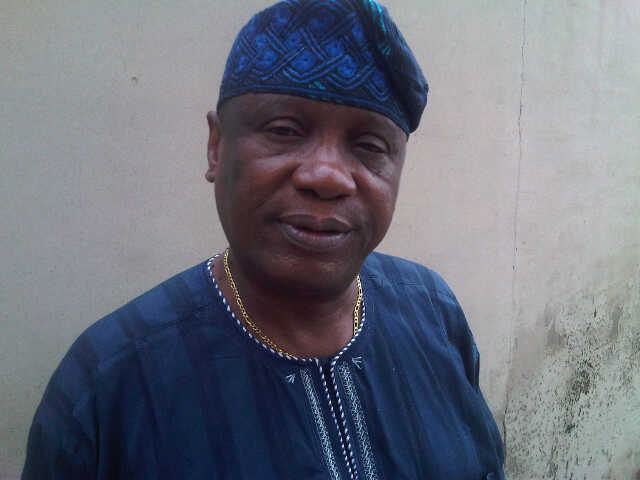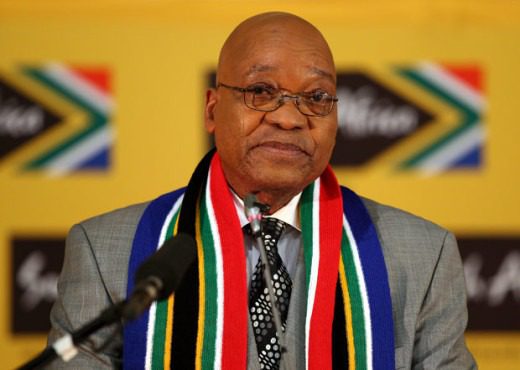Democracy & Governance
The Beauty In Regionalism -By Eric Teniola


Eric Teniola
Chief E.M.R. Okorodudu was the first agent general of Western Nigeria in the United Kingdom. Like every agent general, his work covered the whole of Europe. He later became a commissioner in the Federal Civil Commission between 1968 and 1974, along with Alhaji Sule Katagum (chairman), Sir Samuel Layinka Ayodeji Manuwa, Alhaji Yusuf Jega and Dr. L.O. Uwechia. He replaced his friend, Chief Arthur Prest, who had served in the Commission since 1960. Chief Okorodudu was succeeded as agent general by Chief Emmanuel Akinbowale Olasumbo Akintoye Coker (SAN; 1925-2000), the late Apena of Egbaland. Chief Coker was succeeded as agent general by Prince Delphus Adebayo Odubanjo.
The first agent general of Northern Nigeria was Alhaji Saadu Ayinla Alanamu alias Gbogbo Iwe. Along with Sir Ahmadu Bello, Alhaji Makama Bida and Alhaji Shehu Sarkin, he attended the Constitutional Conference in London on July 7, 1953. He was later turbaned as the Waziri of Ilorin (prime minister) in November 1979. Alhaji Alanamu was succeeded by Alhaji Baba Gana. The first agent general for Eastern Nigeria was Chief Jonah Chinyere Achara, who was a classmate of Dr. Clement Isong at the Methodist College, Uzokali. He was succeeded by Mr. Akpan Ekukinam Bassey from Afah Ikot Abak, near Ikot-Ekpene, in the present Akwa-Ibom State. He was later made a judge of the Federal Revenue Court on July 12, 1976. On October 7, 1977, the federal government set up another three-man tribunal to try those involved in the foreign exchange racket, which was headed by Justice Ekukinam Bassey. Other members of the panel were Group Captain G. A. Esho of the Air Force and Mr. Mamman Ali Makele of the University of Lagos.
Mr. Justice Ekukinam Bassey died on duty on June 26, 1986.
Agents general were like ambassadors of their respective countries, who were tasked with the promotion of tourism and investments. In addition, they were to serve as trade ministers for their regions. They also acted as liaison officers for the regional marketing boards, helping to stabilise the prices of goods and commodities.
This was during the era of the cocoa, groundnut and palm kernel boom. The regions were prudent in the management of their resources and they struggled very hard to get the revenues to survive.
On Friday January 28 1966, the then head of state, Major General Johnson Thomas Umunakwe Aguiyi Ironsi told the nation at a press conference that “I have abolished the offices of agent general in London”.
Chief Obafemi Awolowo as premier of the Western Region noticed that money could be made through cinemas and theatres. So his government formed a company with some Lebanese businessmen to establish cinema houses in Lagos and some parts of the region.
The company later became a subsidiary of Wemabod Estates Limited in 1975 and through the directive of the then military governor of the Western Region, Brigadier General Oluwole Rotimi, the shares of the company were transferred to Wemabod Estates Limited. Its asset included leaseholds, lands and buildings, which were later sold to Wemabod Estates Limited at mutually agreed prices.
foraminifera
Presently, the company has resorted to the conversion of its existing structures into shops and halls, while the available lands are being allocated to individuals to put up shops, makeshift kiosks and containers, among others. At present, the Odua Investment Company, headed by Mr. Wale Raji, is taking a comprehensive schedule of letting out the properties of the companies to tenants.
The remaining functional Cinema houses are Casino Cinema on Herbert Macaulay Street, Yaba, Lagos; Corona Cinema, Ita Faji, Lagos; Queens Cinema, Ekotedo, Ibadan; and Rex Cinema, Tewogboye Street, Ondo. Also as premier of Western Region, Chief Awolowo, with his then minister of Agriculture, Chief Gabriel Akin Deko, established farm settlements all over the region. In 1958, while at Methodist Primary School, Otapete, Ilesha, in the present Osun State, it was always the joy of my life to spend weekends with my uncle, Chief Henry Aroloye, now the Aruwajoye of Idanre, who was then the agric officer in charge of Ijebu Ijesha farm settlement.
Lapal House at Igbosere road on Lagos Island, which is now abandoned; Western House on broad street, Lagos; the 26 storey Cocoa House in Ibadan; and lots of other buildings, including Ikeja Airport hotel; University of Ife, now Obafemi Awolowo University, were built with proceeds from tax and cocoa by the old Western Region of Nigeria, during the tenures of Chief Awolowo and Chief Samuel Ladoke Akintola.
Hamdala hotel in Kaduna, Ahmadu Bello University established on October 4, 1962, the Northern Nigeria Investment Limited and many other projects in the then Northern Nigeria, were built during the era of Sir Ahmadu Bello as premier of Northern Nigeria.
During his tenure as chairman of the Eastern Nigeria Marketing Board, Sir Louis Odumegwu Ojukwu (1909-1966) encouraged the then Eastern Nigeria government to establish numerous companies. The board was established in 1954. The government also established farm settlements at Ohaji, Igbariam, Boki, Ulonna, Erei, Uzo-Uwani and Egbema to encourage agriculture.
The trading of goods was also a major part of the regional economy. In 1954, imports to the region were about 25 million pounds a year, which were brought into the country by a few European firms but distributed by thousands of traders within the region. The trade in imported goods such as dried fish, motor parts and textiles went on along with the trade in local foodstuffs.
In industry, the coal mines of Enugu, managed by Nigerian Coal Corporation and Niger Steel rolling mill, which used steel scraps to produce mild steel bars, were some of the few coal mines and steel plants in operation in West Africa in 1963. During the National Council of Nigeria and the Cameroons (NCNC) government led by Dr. Nnamdi Azikiwe, a cement factory was established at Nkalagu, Nigerian Breweries founded a stout factory at Aba, while a tobacco manufacturing and glass making plants were located in Port Harcourt.
Tinubu Bank was established by a Nigerian Journalist, Mr. Ebuka Ezeh, in 1944. Following the intervention of Dr. Nnamdi Azikiwe, – the then premier of Eastern region and Sir Lois Ojukwu, Chief Mbonu Ojike, the minister of finance in the Eastern Region, directed the Eastern Nigeria Finance Corporation and the Eastern Nigeria Marketing Board to transform Tinubu Bank into African Continental Bank (ACB). In the early 1960s, the bank was well managed under Mr. Adolphus Blankson and Chief Fred McEwen and competed with the big banks then like Barclays Bank, Standard Bank and Chartered Bank. In fact a branch of the bank today is still at Yaba, Lagos very near Domino stores owned by the father of Senator Ben Bruce. Till the bank got distressed in 1991, it had 107 branches.
No doubt the regions were doing well. Tragically on February 21, 1966, General Ironsi told the nation that, “It has become apparent to all Nigerians that rigid adherence to ‘regionalism’ was the bane of the last regime and one of the main factors which contributed to its downfall. No doubt, the country would welcome a clean break with deficiencies of the system of government to which the country has been subjected in the recent past.” That was the obituary announcement of the death of regionalism in Nigeria. The funeral rites were later made by General Yakubu Gowon when he created the twelve states in 1967 and transferred all the powers of the regions to the centre.
Since then, here we have been.
Eric Teniola, a former director in the Presidency, Writes from Lagos.




















